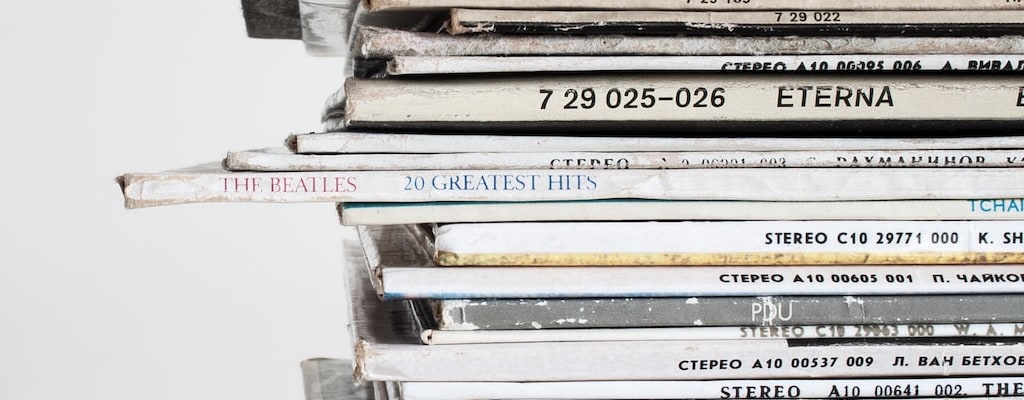blue note: Idiom Meaning and Origin
What does ‘blue note’ mean?
The idiom blue note refers to a musical note that is played or sung with lower pitch than is considered usual. It is often used in jazz music to express melancholy or sadness.

Idiom Explorer
The idiom "jot down" means to quickly write or make a brief note or reminder.
An idiom used to describe someone who is in an emotional or mental state of extreme agitation, distress, or confusion.
The idiom "hit the high notes" means to perform exceptionally well or achieve success, often in a skill or talent that involves reaching a peak or climax.
The idiom "have the blues" means to be feeling sad or depressed, often without a specific reason. It is often associated with a feeling of melancholy or a low mood.
The idiom "hang low" means to appear sad or dejected, often with drooping body posture or a downcast expression.
Hang low is an idiomatic phrase that dates back to the early 16th century. It has its origins in the English language and has been used to convey a particular meaning in various contexts. The phrase is associated with a physical action of suspending something low, but it has evolved to acquire metaphorical connotations in different situations.
An idiom used to express frustration, shock, or annoyance, often in an exasperated or pleading tone.
The idiom "for chrissake" is a colloquial expression that is used to convey frustration, annoyance, or exasperation. It is typically used in situations where the speaker is emphasizing their frustration about a particular matter or situation. The origins of this idiom can be traced back to the early 20th century, although its exact origins are uncertain.
A false note is a mistake or error that creates a sense of inconsistency or inauthenticity in a situation or performance.
An idiom, "fade out," means to gradually disappear or become less noticeable. This phrase is commonly used to describe the gradual decrease or end of something, such as a sound, a scene in a movie, or a memory.
The idiom "down in the dumps" means feeling sad, depressed, or low in spirits.
The idiom “down in the dumps” refers to a state of feeling sad, unhappy, or depressed. It is commonly used to describe someone who is feeling down or low in spirits. The origin and precise meaning of this idiom have been the subject of speculation and debate, but there are some facts that are known for certain.
The Hidden Significance
The idioms "blue devils," "have the blues," "cry the blues," and "hit the high notes" are all related to the idiom "blue note." Each of these idioms stems from the blues genre and carries a similar emotional quality associated with melancholy, sadness, and longing.
The idiom "blue devils," often used in the plural form, refers to a state of deep sadness or melancholy. It is believed to have originated from the association of the color blue with sadness and the term "devils" to signify the overwhelming and oppressive nature of this emotional state. In the context of the blues genre, "blue devils" can be seen as a metaphorical expression of the intense emotional experiences conveyed through the music.
The idiom "have the blues" is a common expression used to describe feeling down or depressed. It is closely linked to the emotional resonance of the blues genre, where musicians often sing about their troubles and hardships. The phrase "have the blues" implies a shared experience of sadness or melancholy, connecting the individual to the broader emotional landscape associated with the blues.
"Cry the blues" is another related idiom, often used to describe someone lamenting or expressing their sorrow. It can be interpreted as an extension of the musical tradition of the blues, where musicians pour their emotions into their performances, often accompanied by soulful vocalizations that evoke a sense of longing and melancholy. When someone "cries the blues," they are metaphorically channeling the emotional depth and intensity of the genre.
"Hit the high notes" is an idiom that is associated with achieving success or reaching a peak in performance, often used in a metaphorical sense. In the context of the blues genre, "hitting the high notes" can be seen as a reference to the moments of intense emotional expression and musical virtuosity that characterize a memorable blues performance. It signifies the ability to embody the essence of the blues and captivate an audience through the evocative power of the music.
The connection between these idioms and the idiom "blue note" lies in the shared emotional quality they convey. By invoking the imagery and sentiments associated with the blues genre, these idioms tap into the rich cultural heritage and expressive power of the music. Whether it's experiencing the "blue devils," feeling like you "have the blues," expressing your sorrows by "crying the blues," or achieving success by "hitting the high notes," these idioms serve as reminders of the profound impact of the blues and the enduring influence of its emotional depth and authenticity.
Overall, the idiom "blue note" originates from the realm of music, specifically jazz and blues, where it refers to a specific musical note played slightly lower in pitch. In addition to its musical connotation, the term has evolved to have a metaphorical sense, reflecting a mood or sentiment associated with the blues genre. The idioms "blue devils," "have the blues," "cry the blues," and "hit the high notes" all share this connection to the idiom "blue note," as they draw upon the emotional resonance and cultural significance of the blues to express feelings of sadness, melancholy, longing, and achievement. These idioms serve as reminders of the enduring impact of the blues genre and its ability to capture and convey the complexities of human emotion.
Example usage
Examples of how the idiom "blue note" can be used in a sentence:
- He added a blue note to his speech by mentioning the need for social justice.
- The musician played a beautiful blue note on his saxophone, creating a soulful sound.
- The artist used a blue note in her painting to evoke a feeling of melancholy.
More "Music" idioms

